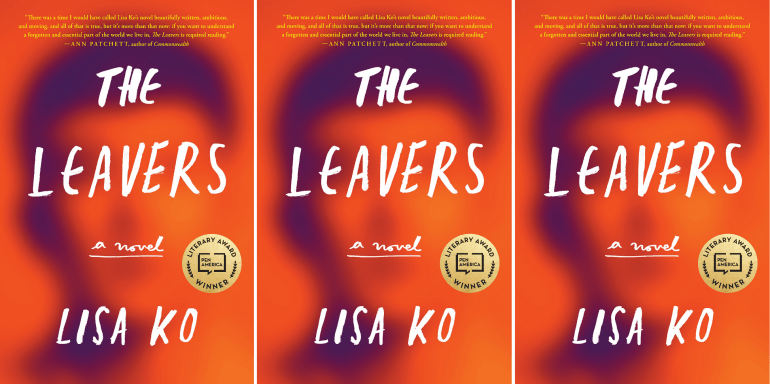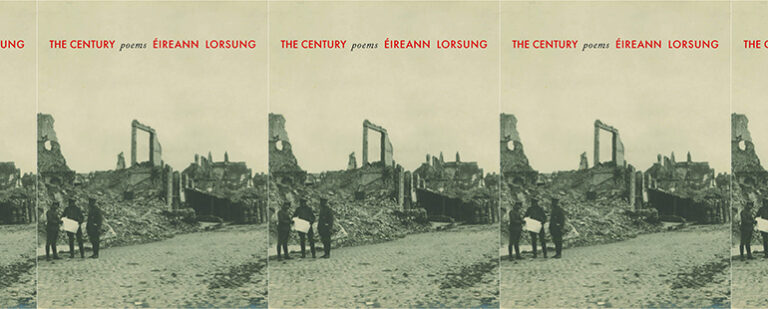Remaking Home: Transformative Motherhood in Lisa Ko’s The Leavers

What makes a “good” mom? What personal needs are we expected to give up in order to raise a child? Traditionally, Motherhood has meant providing warmth, comfort, and stability. It has meant sacrifice. In Lisa Ko’s The Leavers, a relationship between mother and son becomes a catalyst for analyzing these domestic boundaries. By providing the perspectives of both Deming Guo and his mother, Polly, Ko showcases the dynamics of motherhood: it’s not a state defined by simply having a child, but is instead a transformative process experienced by the woman who bore him. Ko redefines motherhood by detailing what it means to be a woman and a mother.
The opening chapter provides the novel’s sole interaction between young Deming and Polly. Immediately Ko provides tremendous insight into their dynamic. Deming knows it’s not the same as what he’s seen between others kids and their mothers, but he celebrates those differences:
She wasn’t one of those TV moms, always hugging their kids or watching them with bemused smiles, but insisted on holding his hand when they crossed a busy street.
Affection is instead shown through protection. And Deming, in acknowledging that Polly is not a typical mother, makes clear that she is a person as well as a parent. He dwells on the specific things that define her, and notes what makes her quintessentially his mother:
Always be prepared, she liked to say. Never rely on anyone else to give you things you could get yourself. She despised laziness, softness, people who were weak. She had few friends, but was true to the ones she had. She could hold a fierce grudge, would walk an extra three blocks to another grocery store because, two years ago, a cashier at the one around the corner had smirked at her lousy English. It was lousy, Deming agreed.
These opening few pages are all that we see of young Deming and his mother together, but they provide a great amount of context. Motherhood, to Deming, is viewed through loss and abandonment, as Polly disappears suddenly. Throughout his life, Deming focuses on finding her—on understanding why his mother would leave him. For Deming, life becomes a personal journey of understanding who his mother really is.
We also see Polly’s view of their relationship. By showing us her frame of mind, Ko encourages us to understand motherhood as a dynamic state—one that enhances personhood rather than defining it:
No one had told me that I could have such love for another person. When I thought of anything harmful happening to you the love burned a little, like a rash, but when I held you and you were calm, the love was beaming, like sunlight through the leaves of a tree.
In comparing her feelings for her son to a bodily emergency, it’s clear that the relationship, to Polly, is palpable. It’s a pain within her person, her feelings made flesh. Much like the love she feels for Deming—overwhelming, all consuming, uncontrollable—she cannot control what separates them. When they finally meet again, many years later, the meeting is also a physical encounter, which we see through Deming’s eyes:
Her mouth wobbled. His heart was beating so loudly he could hear the blood thump in his ears . . . [they] could only stand there, looking at each other. He felt the intensity of her stare and had an urge to duck and hide. He wanted to apologize to her for growing up, for also becoming unrecognizable from his former self.
Ko masterfully utilizes a back and forth as Deming and Polly rediscover each other separate from their original roles of mother and child. Deming wants to know why things happened. He wants answers for behavior that occurred in the past. Polly is reluctant to offer up this information. Though she is Deming’s mother, she also dealt with trauma specific to her own life, without him. Their conversation directly after she reveals her history shows how motherhood and personhood are intertwined:
You slid down the wall until you were buried under the hotel sheets.
“And that was it?” you said. “You forgot me?”
“I didn’t forget. I just survived.”
Ko’s use of “survival” shows the reader how the dynamic between mother and child as adults transforms into a larger, more expansive relationship. It is a careful balance between two separate histories. Survival for Polly means that when she looks at the time away from her son, she sees it as a time when she had to reassess and evaluate her personal worth. Although it is not fully comprehensible to Deming, there is some understanding after the conversation. The relationship, then, transforms—and also allows Polly to become not just a mother to Deming, but also a person in her own right.
Throughout the novel, we see time and separation as tools for understanding relationships and the self. Ko allows us to not only watch Deming grow, but to watch Polly grow as well. Motherhood becomes an action; not a defining characteristic, but rather something that allows for dynamic change.


